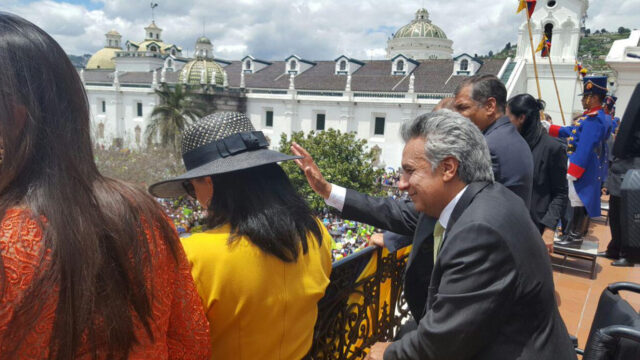Sunday’s vote will see the South American country’s 13.1 million citizens pick a replacement to communist President Lenin Moreno, just as choose officials for fill 137 seats in the National Assembly. Ballots have shut in Ecuador after electors took off in huge numbers to pick another President in a political race held under the shadow of a serious financial emergency and discontent over the treatment of the Covid pandemic.
Assessments of public sentiment show left-wing market analyst Andres Arauz and traditionalist Guillermo Lasso are the front running leaders among 16 official competitors, with Indigenous rights campaigner Yaku Perez in a remote third spot. Specialists say no applicant may arrive at the 40% help and in any event a noteworthy lead over their rivals that is needed for a through and through success. This implies a spillover between the best two challengers is probably going to be held on April 11.
Citizens showed up at polling stations wearing face veils as a safety measure against COVID-19 when the nation is combating a resurgence of diseases, which experiences bothered Ecuador’s financial difficulties. Up until this point, the pandemic has guaranteed approximately 15,000 lives and contaminated more than 257,000. Ecuadorians held up in long queues to project their polling firms, with postpones caused to some degree by Covid related cut-off points on the limit of individuals permitted inside at one time.
Moreno, who isn’t looking for a re-appointment, will end his single term in office unpopular. His endorsement rating has for some time been drifting at around 7 percent, down from 77 percent in his first months in office. The active president was chosen in 2017 as the replacement to Rafael Correa, who raised public spending, cut binds with global loaning foundations, and upheld combination with other communist nations in the locale. Yet, soon after he was chosen, Moreno changed course and sought after more business-accommodating approaches, for example, cutting assessments for worldwide mining financial backers and getting credits from the International Monetary Fund (IMF) and World Bank to subsidize Ecuador’s unfamiliar obligation and financial shortfall.
Arauz, a protege of Correa, has vowed to make $1bn indirect money installments to families and to repudiate the states of a $6.5bn IMF financing bundle. His opponent, Lasso, has vowed to take action against defilement – a gesture to Correa, who was seen as liable in 2020 of disregarding effort money laws, and the Moreno government – and proposed a global enemy of debasement commission. At any rate, nine public medical clinics are being explored for misappropriation during the pandemic.
Running in his third official race, unregulated economy advocate Lasso has said he would make 1,000,000 positions in a year. The previous investor will probably adhere to the grimness strategies embraced by Moreno, who has needed to get control over spending in return for IMF credits to reinforce the oil-creating nation’s wavering dollar-based economy. Surveyors say the chance of low citizen turnout because of the pandemic could imprint his help.
Perez, the first Indigenous competitor in quite a while, is surveying at 12 percent. The excess 12 applicants are all at under 4 percent, including Ximena Pena, the only lady on the rundown.









